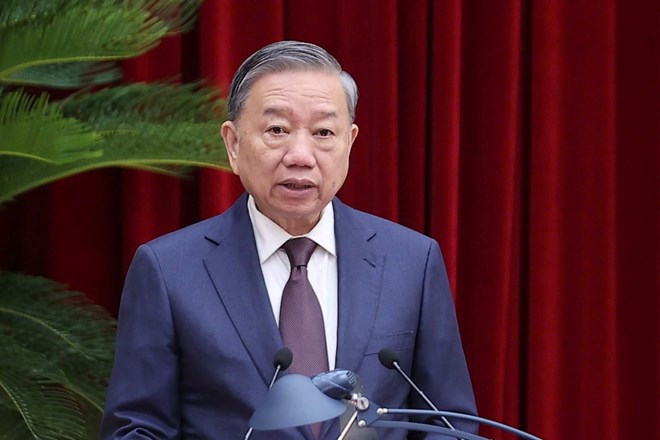On August 20, 2025, the Central Executive Committee issued Resolution 70-NQ/TW of 2025 on ensuring national energy security until 2030, with a vision to 2045.
Energy Transition Step-by-step
The Resolution emphasizes that to meet the requirements of rapid and sustainable national development in the coming period, especially in implementing the two strategic goals set for 2030 and 2045, ensuring energy security plays a crucial role. Energy must take the lead, fully meeting the demands of socio-economic development, national defense, security, and improving people’s living standards.
On behalf of the Politburo, General Secretary To Lam signed Resolution 70-NQ/TW on August 20, 2025, regarding ensuring national energy security until 2030, with a vision to 2045.
Regarding the overall goals to 2030, Resolution 70-NQ/TW specifies: firmly ensuring national energy security; providing adequate, stable, high-quality, and low-emission energy for socio-economic development, national defense, security, improving people’s lives, and protecting the ecological environment.
The Resolution sets out a gradual energy transition to meet the requirements of national development and international commitments. The energy sector is to develop harmoniously across sub-sectors with synchronized and smart infrastructure, reaching an advanced level within ASEAN. The energy market will be competitive, transparent, efficient, and aligned with a socialist-oriented market economy.
Domestic energy resources are to be exploited quickly and efficiently, combined with reasonable energy imports and exports. Energy is to be used more efficiently. Many major equipment and materials in energy sub-sectors will be produced domestically; transmission and distribution grids will be modern and smart.
Resolution 70-NQ/TW of 2025 sets the target for energy efficiency at around 8–10% of total final energy consumption compared to the business-as-usual scenario.
Emphasis on Energy Efficiency and Conservation Utilization
Resolution 70-NQ/TW of 2025 on ensuring national energy security until 2030, with a vision to 2045, emphasizes energy efficiency, targeting 8–10% savings compared to the business-as-usual scenario. This also aligns with the goals of the National Program on Energy Efficiency for the 2019–2030 period (VNEEP3).
One of the key tasks and solutions to ensure national energy security is to accelerate the implementation of the National Program on Energy Efficiency for 2019–2030 and the national demand-side management program. It encourages the development of industries that apply energy efficiency to bring socio-economic benefits. Mandatory energy efficiency targets will be set for each sector and locality. The Resolution also calls for technological improvements, the adoption of technical standards and regulations on energy performance for equipment, machinery, vehicles, and buildings. Low-efficiency, high-emission vehicles and machinery are to be gradually phased out, while enterprises are encouraged to invest in high-performance technologies.
At the same time, the Resolution proposes studying the establishment of a sustainable energy development fund to promote energy efficiency, environmental protection, and socialization. Enterprises will be encouraged to produce and use clean energy independently.
In particular, the application of science, technology, innovation, and digital transformation will be promoted to accelerate the fast and sustainable development of the energy sector. Vietnam will gradually master modern technologies, including nuclear energy technology, aiming for self-sufficiency in manufacturing most energy equipment for domestic needs and export, both in terms of technology and equipment.
The Resolution also outlines key measures to achieve these goals, including: improving institutions and policies, diversifying energy supply sources, accelerating technology adoption, and strengthening strategic reserves.
Quoted: vsuee.vn









 Consultation on the methodology for developing and updating energy consumption standards for four major industrial sectors
Consultation on the methodology for developing and updating energy consumption standards for four major industrial sectors
 Opening of the 2025 Energy-Efficient Equipment and Green Transition Exhibition Fair
Opening of the 2025 Energy-Efficient Equipment and Green Transition Exhibition Fair
 Energy-saving solutions and green transition promotion
Energy-saving solutions and green transition promotion
 The 9th VEPG Steering Committee Meeting: Strengthening Coordination for Viet Nam’s Just Energy Transition
The 9th VEPG Steering Committee Meeting: Strengthening Coordination for Viet Nam’s Just Energy Transition